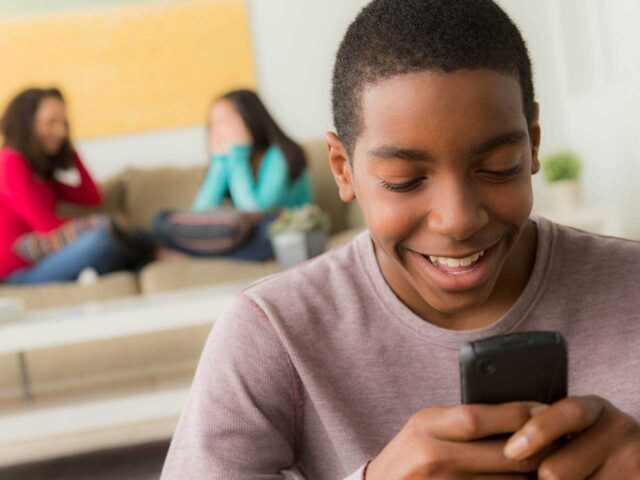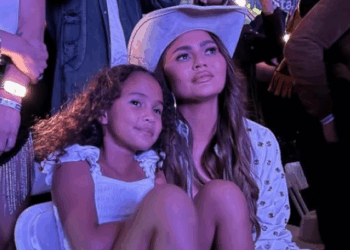A new study shows that kids can become addicted to social media. The study revealed that, during a brain scan of participating teens, the areas associated with addiction lit up as the teens watched TikTok.
“Any addiction is defined by the inability to stop repeated or prolonged use despite continued negative consequences,” said Clifford Sussman M.D., a child and adolescent psychiatrist based in Washington, D.C., in a recent interview with Parents.com.

Dr. Sussman, who treats people of all ages with excessive screen time-related issues, continued, “The severity is related to the dysfunctionality of the negative consequences. Therefore, phone and social media addiction are not defined by the total hours or frequency of use, but rather the negative impacts.”
What are a few signs that might indicate that your child is addicted to social media? Well, Julia Tartaglia, M.D., a digital and behavioral health researcher at the Feinstein Institutes for Medical Research at Northwell Health, said that these are some signs a child may be suffering from social media addiction:
* Spending increasing amounts of time on social media.
* Losing friendships, slipping grades, or conflicts with teachers or parents over social media use.
* Choosing to spend time online over real-life activities, such as seeing friends, attending school, and personal interests.
* Unsuccessful attempts to cut down or stop using social media.
* Neglecting personal hygiene, sleep, nutrition, and exercise.

What can parents do to help if they notice that there may be some addictive social media behavior?
First, open the lines of communication. Talk to your children and make sure that they are aware of their behavior and let them know that you are concerned.
Secondly, know that although the jury is still out on “screen time limits,” they may not help.
“We don’t know enough to say that parents can prevent social media addiction by requiring their child to adhere to certain screen time limits,” said Dr. Tartaglia. “It turns out that the relationship between screen time and psychological well-being isn’t straightforward. However, some studies have found associations between excess screen time and poorer psychological and developmental outcomes, especially in younger children. This suggests that limiting excessive screen time may be beneficial.”

Another suggestion is to bring the kids in on the conversation. According to Julianna Miner, author of Raising a Screen Smart Kid: Embrace the Good and Avoid the Bad in the Digital Age and former adjunct professor of public health from Cincinnati, ask kids, “How much time a day is reasonable to spend on, [not only TikTok, but social media as a whole]?”
Social media is unquestionably useful. It is an important tool that encourages connections; however, just how much of a good thing is too much?
If you would like to delve into this topic further, click here to start creating your own family plan for social media use.







